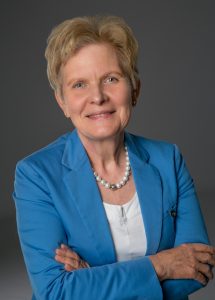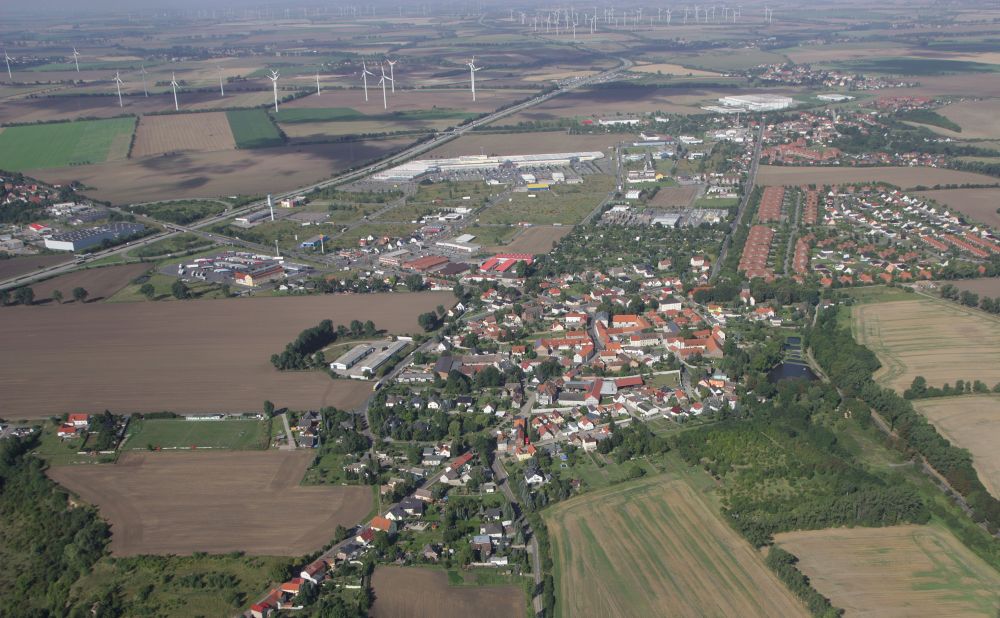The favorable location of the municipality of Hohe Börde combines relaxing nature with good connections to nearby towns. The unified municipality in the district of Börde in Saxony-Anhalt consists of 18 districts with a total population of around 19,000. Located between Magdeburg and Braunschweig, the municipality has direct connections to the A2 and A14 highways as well as the Berlin-Magdeburg-Braunschweig-Hanover railroad line. This makes Hohe Börde an attractive place to live for commuters who want to live in an idyllic setting and a convenient location for medium-sized companies. To further increase the attractiveness of Hohe Börde, the municipality has focused on broadband expansion. The new network has been in operation for a good year now and Hohe Börde is taking another step forward – towards a digital society.
Own digital concepts for all elementary school

The municipality’s educational institutions are already connected to the new broadband network. “In the large districts of Bebertal and Niederndodeleben, the elementary school have also been equipped with faster internet. A separate concept for information and communication technology was developed for all elementary school in the municipality,” explains Trittel: “The elementary school are now equipped with a class set of mobile devices, interactive displays on each floor, Wi-Fi on all floors and a standardized server-based school management solution.”
The next step is to bring high-speed Internet to the smallest inhabitants of Hohe Börde. “The municipality is currently in the process of equipping all daycare centers with faster Internet access,” says Trittel: “The daycare centers currently have Internet access, but this needs to be equipped with higher bandwidths.” In future, the kindergartens will work with an administration program that can be used to register, de-register and re-register children, among other things. In addition, the daycare centers are to be digitally networked with the municipal administration.

The municipality’s educational institutions are already connected to the new broadband network. “In the large districts of Bebertal and Niederndodeleben, the elementary school have also been equipped with faster internet. A separate concept for information and communication technology was developed for all elementary school in the municipality,” explains Trittel: “The elementary school are now equipped with a class set of mobile devices, interactive displays on each floor, Wi-Fi on all floors and a standardized server-based school management solution.”
The next step is to bring high-speed Internet to the smallest inhabitants of Hohe Börde. “The municipality is currently in the process of equipping all daycare centers with faster Internet access,” says Trittel: “The daycare centers currently have Internet access, but this needs to be equipped with higher bandwidths.” In future, the kindergartens will work with an administration program that can be used to register, de-register and re-register children, among other things. In addition, the daycare centers are to be digitally networked with the municipal administration.
There are other public institutions in Hohe Börde that will benefit from the fast broadband network: “Just like the daycare centers, the fire departments will also be equipped with faster internet,” says Trittel. To further digitalize the fire stations, the municipality has introduced management software that can be used, for example, to plan personnel for the children’s and youth fire departments. The existing inventory – such as vehicles, radio technology, devices and equipment as well as all clothing – can now also be managed digitally. In future, the program will also be used to bill for chargeable operations.
Survey for citizen-oriented digitalization
Following the completion of the broadband expansion, the next step towards a digitally competent municipality has been taken: Hohe Börde is working on a concept for the further digitalization of the municipality. “The municipality of Hohe Börde has commissioned a social space-oriented feasibility study on the digitalization of the municipality of Hohe Börde, according to which the municipality will take action in the coming years,” says Mayor Trittel. With the help of this study, Hohe Börde has gained insights for citizen-oriented digitalization. The new digital services are now to be geared towards the needs, skills and knowledge of citizens. The long-term goal is to develop digital support services for a digitalized society that improve life and work in rural areas.
In the survey, the residents of Hohe Börde expressed the wish to be empowered to deal with digitalization. The municipality therefore launched the “Digital village Hohe Börde – digital skills acquisition for all generations” project. Learning and teaching events – known as village conferences – are taking place as part of this project. Citizens can acquire digital skills in various advisory and training courses on specific topics, such as how to book a train online. Learning tandems are also organized in which young citizens train older people in how to use a tablet, for example. The municipality of Hohe Börde has purchased a set of tablets specifically for this purpose. Participants in the village conferences can also bring their own devices and ask questions about how to use them or about topics such as the internet and data protection. In this way, not only the infrastructure of Hohe Börde is being made fit for the digital world, but also its population.


